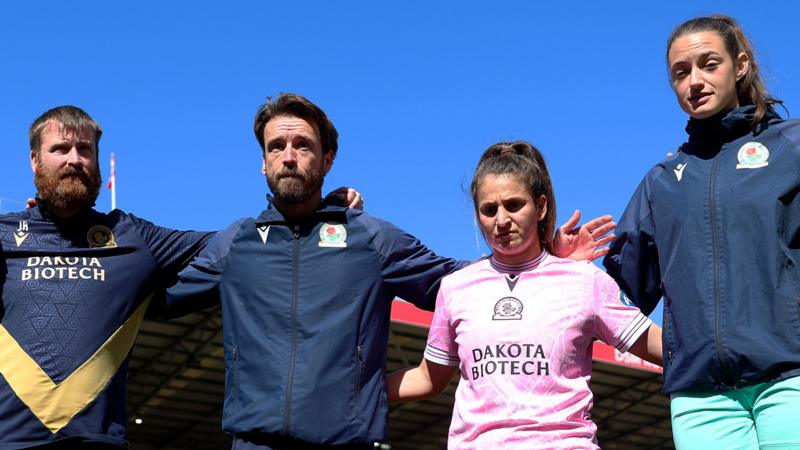WSL2 Shakeup: Blackburn Exit Stuns Rivals, Sparks Debate



In a surprising move that has sent shockwaves through the community, the Blackburn Rovers have announced their decision to withdraw their women's team from the Women's Super League 2 (WSL 2) ahead of the 2025-26 season. The decision has profound implications, not only for the players and staff directly involved but also for the supporters and the broader landscape of women's football in the UK.
The emotional impact on the team is palpable. Former players who have donned the Blackburn Rovers jersey expressed their dismay, describing feelings of shock and disappointment. For these athletes, the club was more than just a team; it was a community and a crucial platform for their professional and personal development within the sport.
Blackburn Rovers' participation in WSL 2 has been significant since their promotion. Their presence in the league not only heightened competition but also brought a rich history and passionate fanbase to women's football, elements that are vital in promoting and growing the sport at all levels.
The reasons behind the withdrawal appear to be complex, involving financial, logistical, and strategic factors. Financing women's sports teams remains a contentious issue, with many clubs facing challenges in generating sufficient revenue to maintain competitive teams. Lack of sponsorship deals and limited media coverage can exacerbate these financial challenges, leading clubs to make tough decisions about their investments in women's teams.
Moreover, logistical challenges such as facilities, travel, and training environments contribute to the difficulties faced by clubs operating women's teams. These factors require significant attention and improvement to provide female athletes with the resources they need to succeed.
Strategically, the withdrawal might be signaling a shift in focus or a realignment of priorities within the club’s larger operational goals. However, it does raise concerns about the long-term sustainability and development of women's football. It brings to light the vulnerability of women's sports to fluctuations in financial backing and strategic interests of parent clubs.
The ramifications of Blackburn Rovers' withdrawal are extensive. It affects not only current players, whose careers and growth are directly impacted, but also the aspiring footballers who see the league as a tangible goal. For many young girls, local professional teams represent a pathway to achieving their dreams. Seeing a team fold can be disheartening and may deter participation at grassroots levels.
The conversation around this development also touches on broader themes of equality and investment in women's sports. While there has been progress over the years, incidents like this highlight the ongoing need for concrete support systems to anchor women’s leagues and ensure they can withstand pressures without disbanding.
Community support, fan engagement, and corporate sponsorships are more critical than ever. These elements are essential to establishing resilient structures for women’s football. Engagement doesn’t only keep the teams afloat but can propel them to greater visibility and success, enhancing the overall ecosystem of the sport.
Looking forward, all stakeholders in women’s football — from federation bodies to local clubs, and from corporate sponsors to the fans — need to join hands in creating a stable and vibrant environment for the sport. Robust backing, better media coverage, and equal facilities compared to men's leagues are necessary steps toward this goal. Initiatives could include better marketing strategies, community engagement programs, and policies that ensure equal opportunities and facilities for women’s teams.
The withdrawal of Blackburn Rovers from WSL 2 is undoubtedly a setback. However, it also serves as a critical reminder and perhaps a call to action for those who influence the sport. For women’s football to continue to flourish, a collective, sustained effort from all corners of the sport and its supporting community is essential. Only through these concerted efforts can we hope to prevent such disappointments in the future and pave the way for a stronger, more equitable sporting landscape.